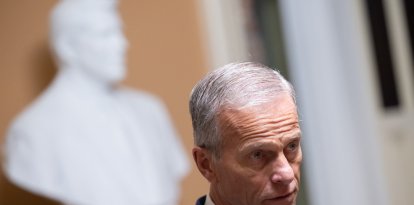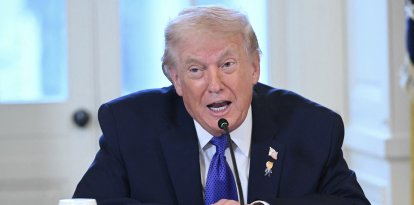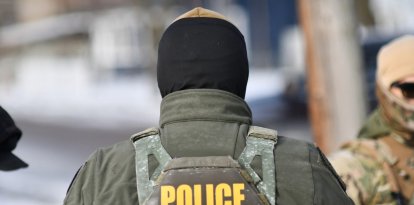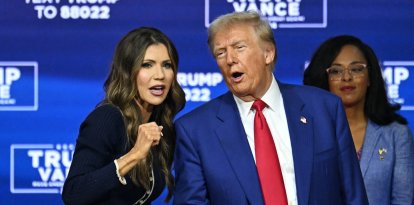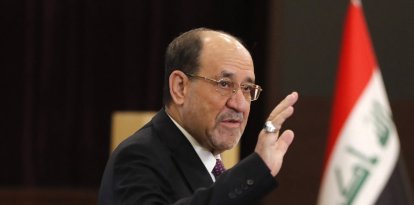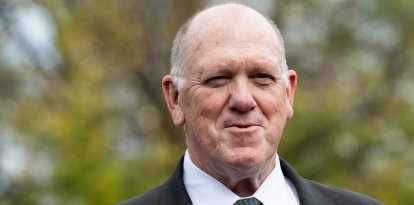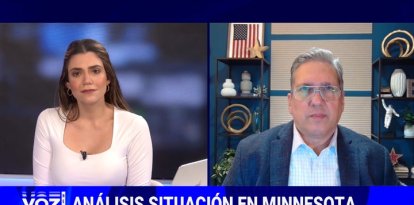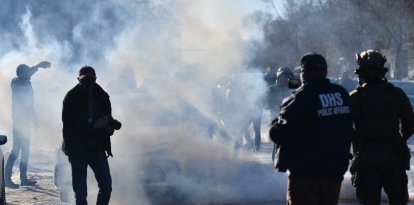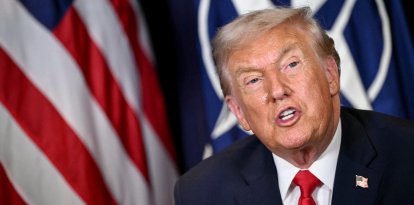Biden Administration turns DHS into social media censors
The agency, which was created after 9/11 to confront Bush's "War on Terror," is now furthering its work to combat disinformation and fake news through online censorship in the hands of the Big Tech.
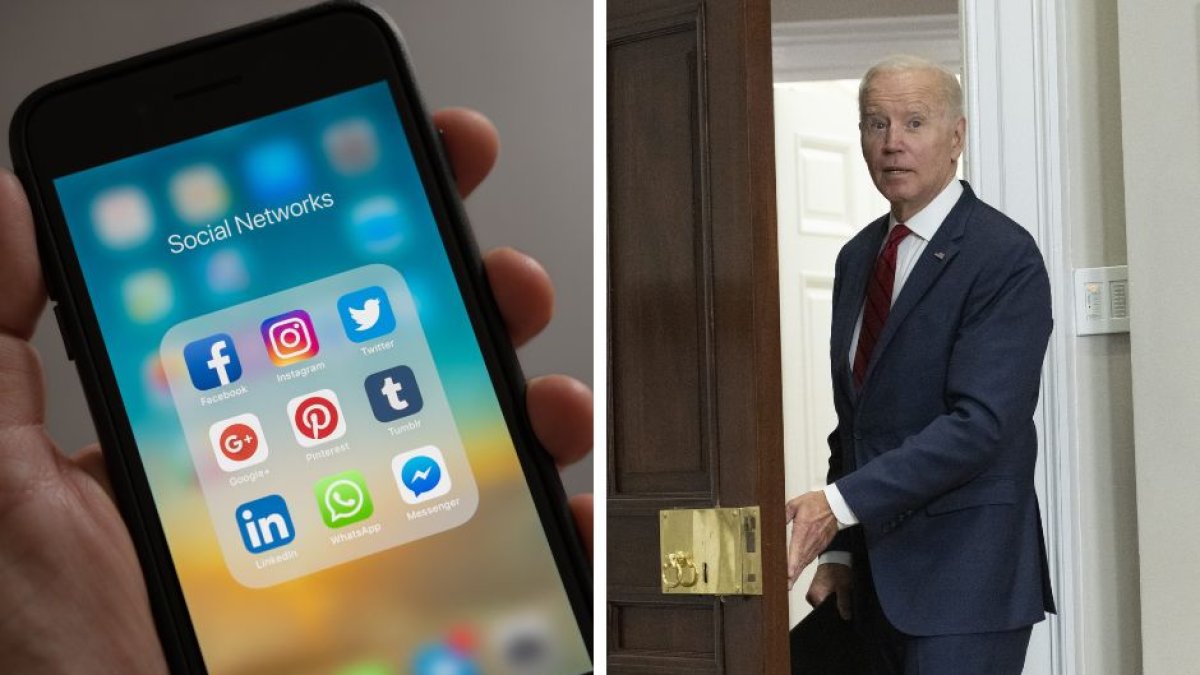
Pexels/Cordon Press
The Department of Homeland Security (DHS) has set the fight against the "domestic terrorism" and its main weapons, disinformation and fake news among its top objectives. Leaked documents show that the Biden Administration has significantly increased the agency's involvement in pursuing and censoring, hand in hand with Big Tech, content it considers to be "potentially dangerous.”
After proclaiming the end of the "War on Terror,” which was the reason why the DHS was originally created by the Bush Administration in 2003, Joe Biden's Administration is reorganizing and increasing the amount of resources allocated to controlling social networks and the media. In 2021, those in charge turned the group working against foreign influence into a team of misinformation (spreading false information, without knowing it is false), disinformation (spreading false information, knowing it is false) and fake news (contrasting information, usually shared out of context, with the intent to harm).
"Tackling extreme polarization"
To reaffirm this commitment, Jen Easterly, the Biden-appointed director of the Cybersecurity and Infrastructure Security Agency (CISA), made it clear that she would invest agency resources to combat fake news and misinformation on social media. During a lecture, Easterly justified her stance, "One could argue we’re in the business of critical infrastructure, and the most critical infrastructure is our cognitive infrastructure, so building that resilience to misinformation and disinformation, I think, is incredibly important."
In 2021, the Biden Administration released the first National Strategy for Countering Domestic Terrorism. The end of the document introduces a "broader priority: enhancing faith in government and addressing extreme polarization, fueled by a crisis of disinformation and misinformation often channeled through social media platforms, which can tear Americans apart and lead some to violence."
"Working with the technology sector"
To that end, "we are working with like-minded governments, civil society and the technology sector to address terrorist and violent extremist content online, including through innovative research collaborations." All of this is once again justified that the administration was "addressing the crisis of disinformation and misinformation, often channeled through social and other media platforms, that can fuel extreme polarization and lead some individuals to violence."
The problem that experts see is that the consideration of "disinformation" is too subjective. It is up to agents themselves to decide what constitutes "dangerous speech" with political connotations. This is something that DHS believes is necessary because terrorist threats can be "exacerbated by misinformation and disinformation spread online.” Adam Goldstein, FIRE's vice president of research, said “No matter your political allegiances, all of us have good reason to be concerned about government efforts to pressure private social media platforms into reaching the government’s preferred decisions about what content we can see online."
Hunter Biden, Covid and vaccines
Not surprisingly, complications and alleged abuses were widespread. Clear examples are Facebook's and Twitter's acknowledged censorship of news related to information found on Hunter Biden’s computer before the 2020 elections following pressure from the FBI or the monitoring, editing and removal of content that went against the official version on Covid-19. In fact, "DHS plans to focus on inaccurate information about the origins of the Covid pandemic and the efficacy of Covid vaccines, racial justice, the U.S. withdrawal from Afghanistan, and the nature of U.S. support for Ukraine."
A report unveiled by The Intercept revealed the existence of a formal process in which government officials flag content on Facebook or Instagram and request that its visibility be reduced or even deleted through a special Facebook portal that requires a government or law enforcement email to use. In this case, or in emails with Twitter or other media executives, the agency always included a tagline assuring that "neither has nor seeks the ability to remove or edit what information is made available on social media platforms."
Missouri prosecutor's lawsuit
Last year, Missouri Attorney General Eric Schmitt filed a lawsuit against what he sees as a widespread effort by the Biden administration to pressure Big Tech to censor or edit certain posts appearing on its platforms. The complaint focuses particularly on the Administration's effort to censor certain stories, especially those related to the pandemic. In addition, it includes multiple government agencies that have been involved in efforts to control speech and "open collusion" between the administration and social media companies.
This is corroborated by Jonathan Turley, a law professor at George Washington University: "There is growing evidence that the legislative and executive branch officials are using social media companies to engage in censorship by surrogate. It is axiomatic that the government cannot do indirectly what it is prohibited from doing directly. If government officials are directing or facilitating such censorship, it raises serious First Amendment questions."
Is it legal to monitor citizens without a warrant?
In addition, there is another question about the legality of the agency's monitoring of citizens' and businesses' social media: the Privacy Act of 1974, which was enacted in the wake of the Watergate scandal. This limits the government's collection of information from citizens. Civil liberties groups have brought up the issue, stressing that the actions of DHS and other agencies violate this principle. The statute, however, maintains exemptions for information collected for purposes of a criminal or police investigation.
According to Faiza Patel, director of the Brennan Center for Justice's Liberty and National Security Program, "There are no specific legal constraints on the FBI’s use of social media. The attorney general guidelines permit agents to look at social media before there is any investigation at all. So it’s kind of a Wild West out there." This situation has led one FBI agent in charge of this matter to confess to The Intercept, "Man, I don't even know what's legal anymore." The agent said this while lamenting the drift toward warrantless monitoring of U.S. citizens.
Although the Biden Administration are the ones that have expanded this function, collaboration between the government and Big Tech dates back to the early days of the creation of DHS. Back then, they collaborated to monitor accounts linked to ISIS. The first moves to monitor "domestic terrorism" came in 2018, following cyberattacks on critical U.S. infrastructure.















